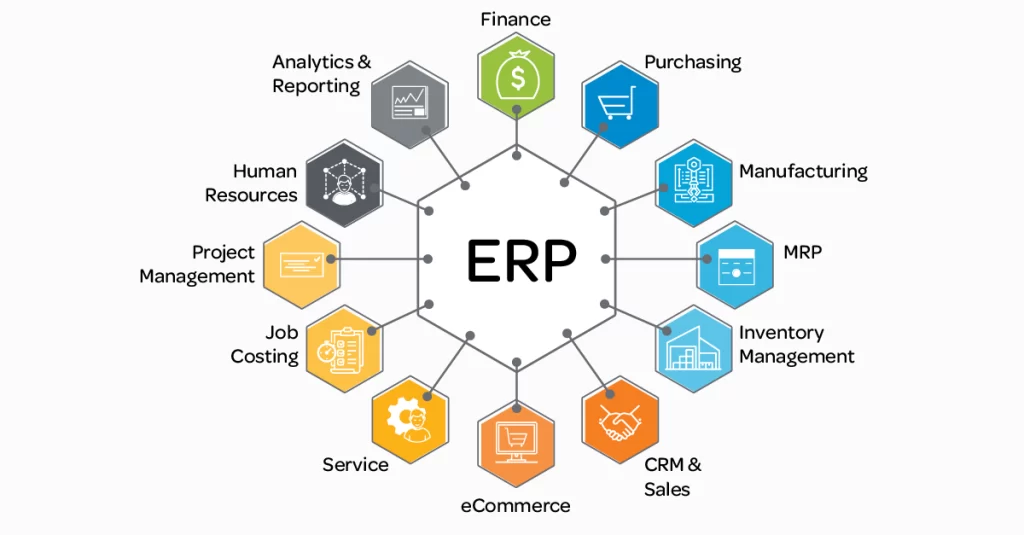ERP stands for Enterprise Resource Planning. It is a type of software that organizations use to manage their day-to-day activities. This software integrates various business processes and functions across departments, allowing for improved communication, streamlined processes, and data flow.

The features of a standard ERP system can vary depending on the specific software and the needs of the organization. However, some common features found in many ERP systems include:
- Financial Management: This module typically includes features for accounting, financial planning, and budgeting.
- Human Resources Management: This module covers employee management, payroll, benefits administration, and often includes features for recruitment and training.
- Supply Chain Management: This involves tracking the movement of raw materials, inventory management, and order fulfillment.
- Manufacturing: For organizations involved in production, this module helps manage the manufacturing process, from production planning to quality control.
- Customer Relationship Management (CRM): Helps manage interactions with customers, track sales leads, and improve customer service.
- Inventory Management: Tracks the movement of goods within an organization, helping to optimize stock levels and reduce wastage.
- Procurement: Manages the procurement process, from supplier selection to order processing.
- Project Management: Assists in planning, executing, and tracking projects, including resource allocation and task management.
- Business Intelligence: Provides tools for reporting, data analysis, and decision-making based on the data collected by the ERP system.
- Reporting and Analytics: Generates various reports and analytics to help management make informed decisions.
- Compliance and Risk Management: Helps organizations adhere to industry regulations and manage risks associated with business operations.
- Mobile Accessibility: Many modern ERP systems offer mobile accessibility, allowing users to access data and perform tasks on the go.
It’s important to note that the exact features can vary, and organizations may choose to implement specific modules based on their industry and needs. Our ERP systems are highly customizable to adapt to the unique requirements of different businesses.
